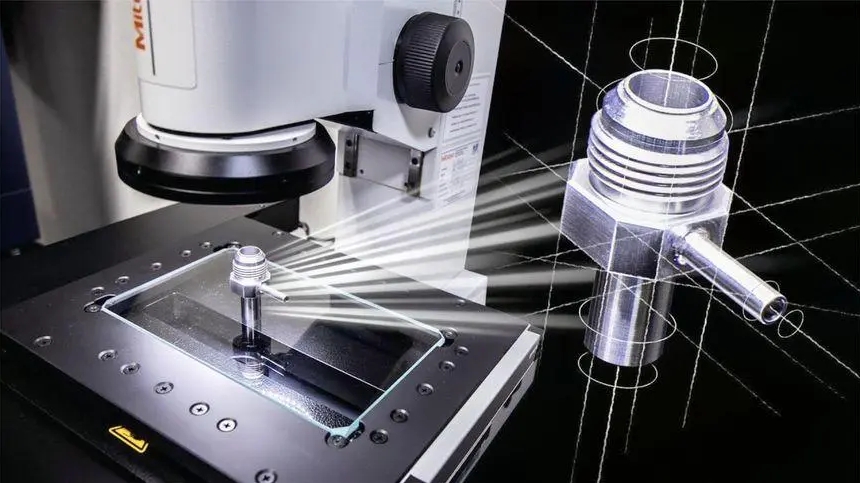How to Evaluate CNC Machining Quotes: Understanding the Factors Behind Transparent Pricing+ View more
How to Evaluate CNC Machining Quotes: Understanding the Factors Behind Transparent Pricing
+ View more
Date:2024-03-21 16:00
CNC machining is a pivotal precision manufacturing process that leverages highly automated computer-controlled machine tools to produce complex parts. Its accuracy and repeatability have made it indispensable across various industries. However, evaluating quotes for these services requires specialized knowledge and a deep understanding of cost components. This article delves into the key factors affecting CNC machining quotes with real parameters for reference.
Components of CNC Machining Quotes
Typically, a CNC machining quote comprises the following aspects:
- Material Costs: Determined by the type (e.g., aluminum alloy, stainless steel, etc.), size, and quantity of raw materials required for the part.
- Machining Time: Calculated based on the complexity of the product, difficulty of machining, and machine operation time.
- Equipment Depreciation and Maintenance: The cost of equipment investment spread over each product, plus regular maintenance fees.
- Labor Costs: The cost of technicians' operations and management.
- Energy Consumption: The cost of energy, such as electricity, consumed during machine operation.
- Quality Control: Additional costs associated with inspecting products and ensuring quality.
- Profit: The profit margin determined by market conditions and company positioning.
Analysis of Influencing Factors
1. Material Costs
For instance, if a project requires 6061-T6 aluminum alloy, which has an approximate domestic market price of RMB 25/kg, and a part weighs 2 kg, the material cost alone would be RMB 50.
Case Study:
Company A requires machining of a batch of parts, each incurring a material cost of RMB 50, totaling 200 pieces; thus, the total material cost is RMB 10,000.
2. Machining Time
The operating costs for CNC machines are usually calculated hourly. Assuming it takes 0.5 hours to machine a part, and the operation cost of the machine is RMB 150/hour, the machining time cost per part would be RMB 75.
Case Study:
For a Model B CNC machine, the time cost to machine a part is RMB 75, so for 200 parts, the total time cost is RMB 15,000.
3. Equipment Depreciation and Maintenance
If a CNC machine is valued at RMB 1 million with an expected lifespan of 10 years, the annual depreciation cost is RMB 100,000. Assuming it operates 300 days a year for 8 hours daily, the hourly depreciation cost is about RMB 41.67. Maintenance costs vary but let's assume RMB 10 per hour.
Case Study:
For the Model B CNC machine, an hourly equipment depreciation and maintenance cost of RMB 51.67 will amount to a total cost of RMB 10,334 for producing 200 parts.
4. Labor Costs
Based on the wage level of the operator, if the hourly wage is RMB 40 and machining a part requires 0.5 hours, then the labor cost per part is RMB 20.
Case Study:
For technical personnel machining 200 parts, requiring 0.5 hours per part, the total labor cost would be RMB 4,000.
5. Energy Consumption
The power usage of a machine during machining depends on its power rating and efficiency. Assuming the CNC machine consumes 10 kWh per hour, with electricity priced at RMB 1 per kWh, the cost of energy per hour is RMB 10.
Case Study:
Assuming the Model B CNC machine consumes 100 kWh for 200 parts, the energy consumption cost would be RMB 100.
6. Quality Control
Quality control costs depend on the investment, usage, and maintenance of inspection equipment. Let's assume an average cost of RMB 5 per part.
Case Study:
The cumulative quality control cost for 200 parts would be RMB 1,000.
7. Profit
Profit is typically a percentage added on top of the total cost. Assuming a profit margin of 20%, each part would need to include an additional 20% of the previous total costs as profit.
Comprehensive Case Study:
Let’s say Company A's total costs (material + machining time + equipment depreciation and maintenance + labor + energy consumption + quality control) are RMB 40,834. With a 20% profit, the final quote would be RMB 40,834 + RMB 8,166.8 = RMB 49,000.8. Therefore, the price per part would be RMB 49,000.8 / 200 = RMB 245.
Conclusion
When assessing CNC machining quotes, every detail can impact the final cost. Clarifying the composition of each expense helps customers understand the value behind the pricing while enabling suppliers to formulate more accurate competitive strategies. Remember, a reasonable quote is not just a numbers game—it represents a comprehensive consideration of material, processes, time, and quality control.
Share to:
Recommend wonderful blog posts

